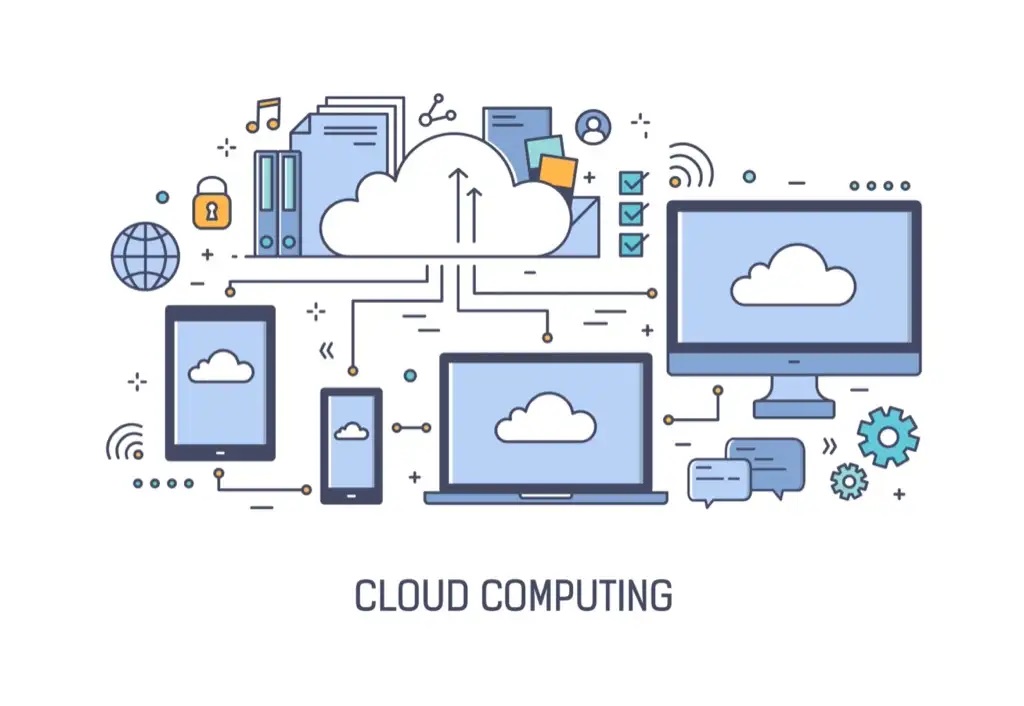Cloud Computing services may differ for various business enterprises as they differ in accessing their respective fields of IT infrastructure, hardware & software resources. Cloud Computing services is referred to computing services delivery such as databases, storage, analytics, servers, networking, management & intelligence. For most businesses cloud provides flexible resources, scalability & quicker innovation of technology.
Cloud computing services transforms the way information technology is used by public & private organizations. Presently, various cloud computing services fulfil the need of any IT prerequisite business.
Organizations using any cloud computing services only pay for what they use letting them reduce operational costs & run infrastructure more resourcefully. Most businesses are using on-demand cloud services therefore, it is important to have an understanding of four elementary categories of cloud computing services.
Let us see the four different types of cloud computing services
1. Infrastructure as a Service (IaaS):
It is the managed lower-end cloud computing services in which hardware resources are offered & managed by an external service provider for users. IaaS offers its users to access the cloud computing resources like networking, data storage capacity & processing power. IaaS allows users to utilize the computing power thru virtual machines without installation of the server management.
Basically, the hardware resources are pulled from various networks & servers shared across several data centers, of which the data is upheld & managed thru the cloud service provider. In other words, IaaS service provider offers cost-effective & scalable IT solutions to eliminate the complexities in managing hardware resources.
IaaS suite may comprise storage, networking, servers & virtualization aspects in which the users are accountable for the installation, and sustaining of databases, Operating systems, applications & security workings.
For instance, Google Compute Engine, Amazon EC2, Windows Azure, Rackspace, etc. IaaS is a completely outsourced & pay-for-use service model that avails service to public, private, or hybrid business frameworks.
2. Platform-as-a-Service PaaS:
This type of cloud computing service offers IT infrastructure along with a computing platform & solution stack as a service. PaaS avails developers the framework to build customized applications online without concern over data storage, server & management.
PaaS is an advanced version of the IaaS cloud computing service. PaaS includes hosting solutions, OS, Software tools for design & development, Setting for Server-side Scripting, DBMS, Storage, Network Access, Support, & Server Software. A few examples of PaaS services are Microsoft’s Azure, AWS cloud streaming, Elastic Beanstalk, Google App Engine, Apache Stratos, OpenShift, Rackspace Cloud Sites, etc.
PaaS offers a scalable business solution wherein multiple developers work simultaneously on a single project. PaaS is easily accessible to situations with a current data source that is required to be leveraged.
3. Software as a Service SaaS:
This cloud computing service is an amalgamation of IaaS & PaaS service solutions. SaaS solution offers application-level services custom-made to diversified business requirements viz., business analytics, automated marketing, & CRM.
SaaS offers web-oriented software applications to customers on-demand & hosts completely practical & efficient applications via the browser-built user interface to create access to the users via the internet. We are accustomed to SaaS cloud computing user applications such as Gmail, Dropbox, JIRA, Netflix, Salesforce, etc.
SaaS can be a subscription packaged model every month with no direct or one-time cost so that users can end the subscription whenever required. SaaS cloud computing service solutions cover Zoho CRM, SAP Business ByDesign, Microsoft Office 365, Eagle 3D Pixel Streaming, AppDynamics, etc.
4. Functions as a Service (FaaS):
Serverless cloud computing model or Functions as a Service takes out near to the ground infrastructural decisions & server management thru developers. FaaS is a new & young solution for many businesses. It allows software developers to build applications & deploy individual functions, and cloud runtime without managing & maintaining a server.
It augments the competence of developers by not letting them waste time on server operations as FaaS services are hosted externally. FaaS cloud computing examples comprise Google Cloud Function, AWS Lambda, Microsoft Azure Functions, Webtask.io, Open Whisk, etc.
FaaS code is highly scalable & it easily eliminates the fault to operate pass-thru failures. It is Cost-effective as users are billed only for the functional service & not for inactive resources.
Conclusions
Businesses using these types of cloud computing services or solutions have an understanding of the respective category that is relevant to their business operations which improves efficiency, and speed & saves costs as per the needs, technological know-how, business procedures & other business components.
Therefore, relying on business preconditions, every business enterprise needs to choose the wise cloud computing service providers such as AWS, Google Cloud Platform, IBM, & many others in the competitive marketplace.




